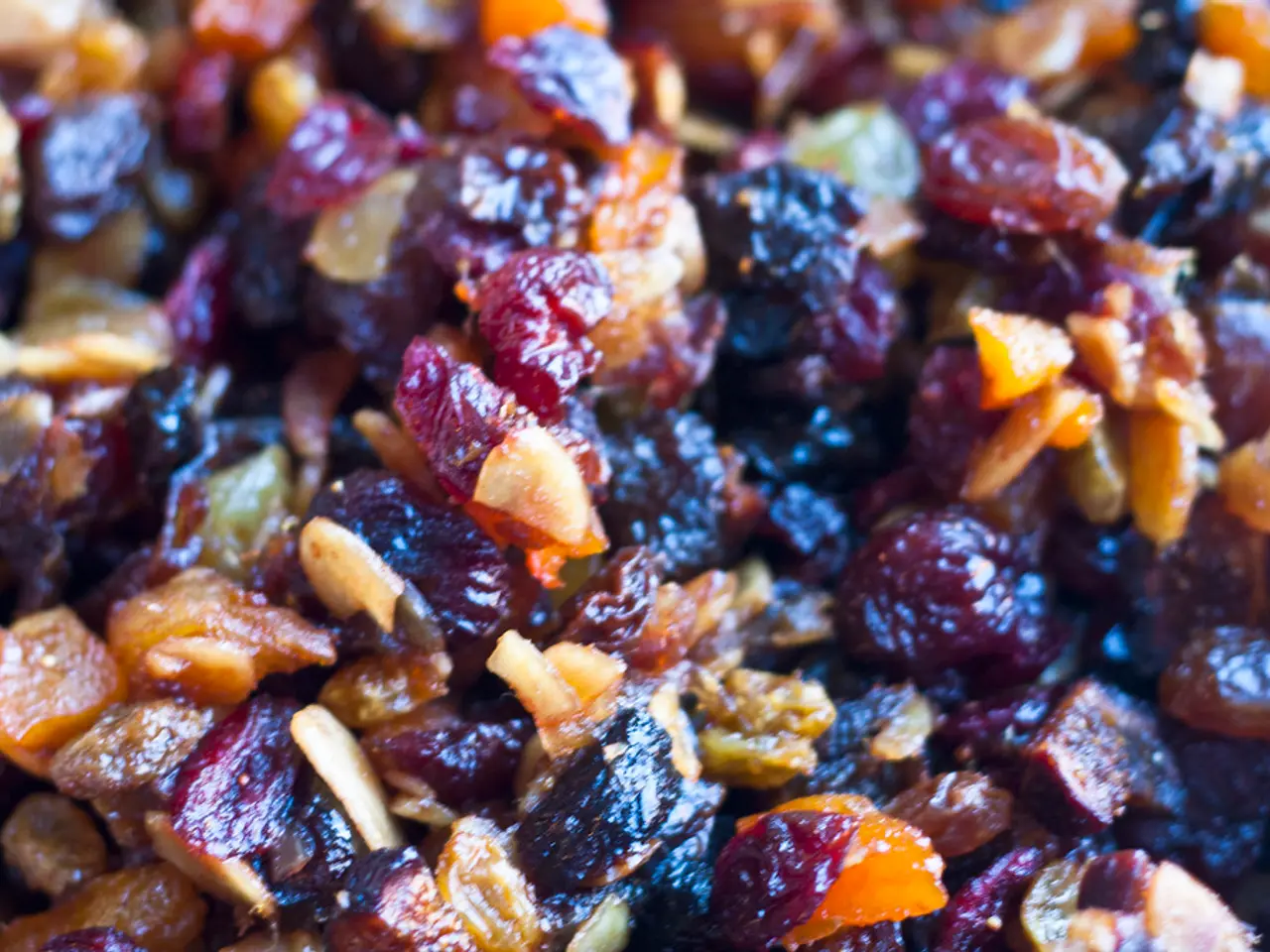Benefits Unveiled: Lactic Acid Fermentation's Positive Aspects in Food Production
Lactic acid fermentation, a traditional food preservation method, is gaining renewed interest for its numerous health benefits. This process, which has been used for centuries, transforms a variety of foods into nutrient-dense powerhouses.
From dairy products like yogurt, piima, matsoni, and kefir, to vegetables such as sauerkraut and kimchi, grains, fruits, and legumes, many foods benefit from the lactic acid fermentation process. These fermented foods not only offer a boost in vitamins but also see increases in their macro- and micronutrient profiles.
Yogurt, for instance, has been heralded as a health food since the 19th century, and for good reason. Fermented dairy products contain more vitamins than raw milk, particularly pasteurized and ultra-high-temperature pasteurized milk. The lactic acid fermentation process increases the bioavailability of amino acids, particularly lysine with its antiviral effects and methionine.
Vegetables that have undergone lactic acid fermentation, such as sauerkraut and kimchi, often see an increase in the activity of vitamin C and vitamin A. Sprouting grains before souring can further increase the availability of protein.
Beyond immunity and intestinal health, lactic acid fermented foods offer several specific health benefits. They exhibit anti-inflammatory effects, enhancing nutrient bioavailability, supporting gut-related disorders, promoting cardiovascular function, and boosting antioxidant capacity.
The anti-inflammatory effects are due to bioactive peptides produced during fermentation, which can reduce inflammation in the body. Fermentation increases the availability and absorption of vitamins (e.g., vitamin C, B12) and reduces anti-nutrients like phytic acid that inhibit mineral uptake, improving nutritional status.
Regular consumption of these fermented foods may alleviate symptoms of irritable bowel syndrome (IBS) by regulating bowel movements and reducing intestinal inflammation. Specific probiotic strains can also help manage small intestinal bacterial overgrowth (SIBO).
Certain bioactive compounds formed during lactic acid fermentation, such as ACE-inhibitory peptides, nattokinase, flavanols, and procyanidins, have been shown in clinical trials to help lower blood pressure and improve lipid metabolism, contributing to cardiovascular health.
Fermentation can transform phytochemicals, like glucosinolates in cruciferous vegetables, into metabolites that enhance the body’s detoxification systems and antioxidant defenses.
In conclusion, lactic acid fermented foods support systemic health by modulating inflammation, enhancing nutrient absorption, relieving gut disorders, promoting cardiovascular function, and boosting antioxidant capacity, extending benefits well beyond gut immunity alone. These effects are underpinned by fermentation-derived bioactive compounds and microorganisms acting synergistically.
Next week, the Traditional Foods primer will delve deeper into how fermented foods can improve health.
- Lactic acid fermentation, an age-old method of food preservation, is becoming more popular due to its numerous health benefits.
- Through lactic acid fermentation, various foods such as bone broth, yogurt, and kimchi become nutrient-dense powerhouses.
- Fermented foods like kimchi, sauerkraut, and kefir not only offer a boost in vitamins but also see increases in their macro- and micronutrient profiles.
- by regular consumption of fermented foods like yogurt, one can potentially alleviate symptoms of irritable bowel syndrome (IBS) and manage small intestinal bacterial overgrowth (SIBO).
- Certain bioactive compounds formed during lactic acid fermentation, such as nattokinase and procyanidins, have been shown to help lower blood pressure and improve lipid metabolism.
- Global cuisines use various types of fermented foods in their cooking, highlighting the importance of fermentation in food-and-drink and lifestyle, health-and-wellness, and fitness-and-exercise.




